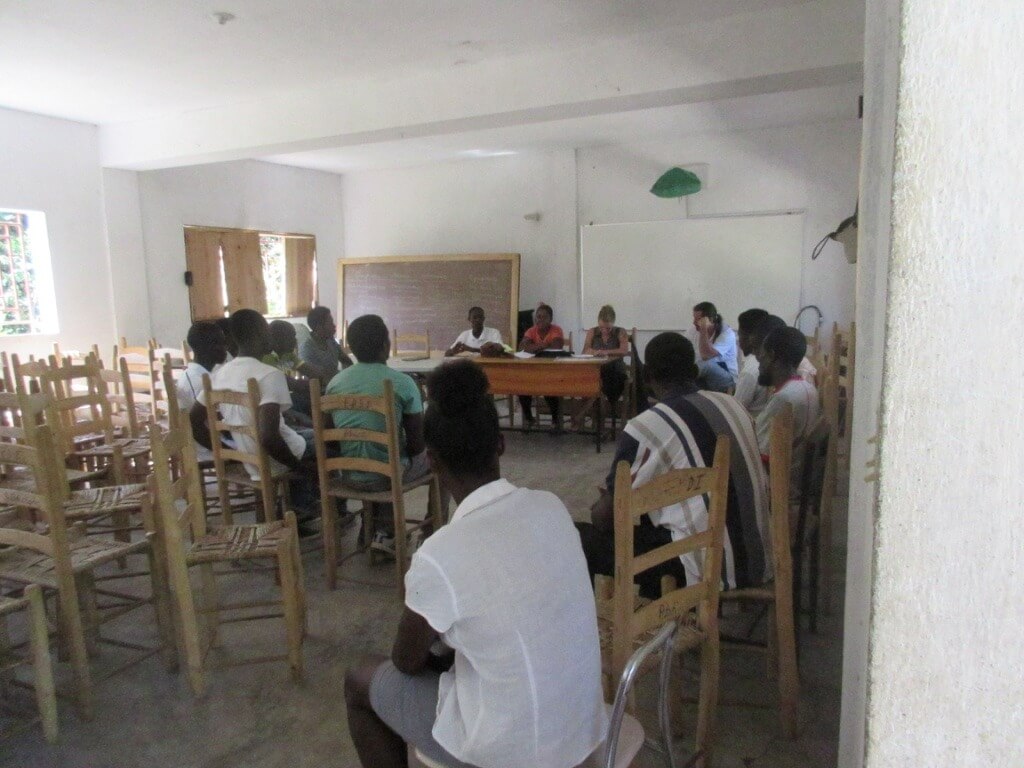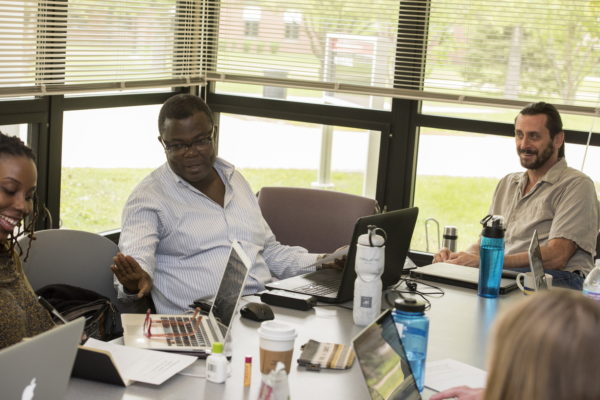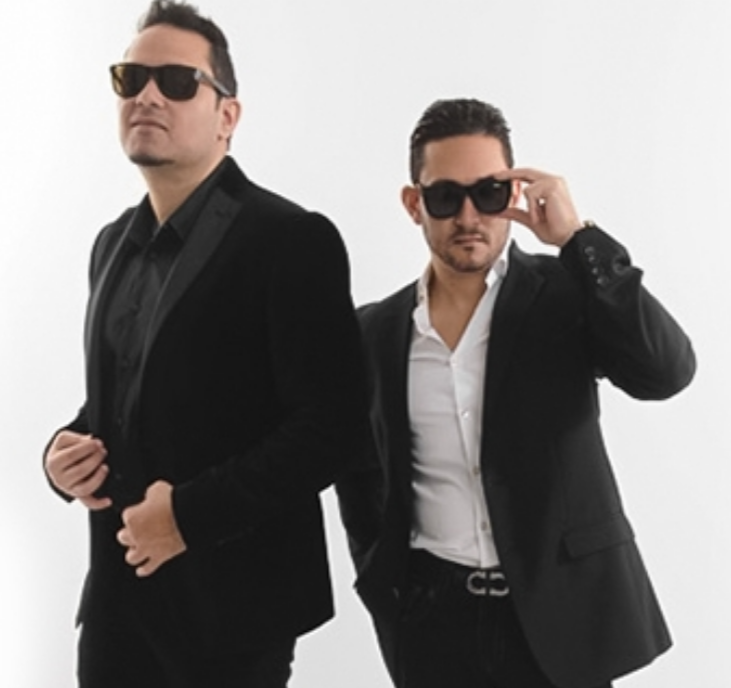Thanks to NIU’s Center for Nonprofit and NGO Studies, hundreds of humanitarian non-governmental organizations (NGOs) may be able to deliver help to the impoverished people of Haiti that is more in tune with what Haitian people say they need.
It has been estimated that NGOs and charitable groups deliver 80 percent of the basic services to that island country, whose per-capita GDP, unemployment and illiteracy have led many to call it the poorest nation in the Western Hemisphere.
But how good a job are those groups really doing and how might they refocus their work? To find out, Mark Schuller, an NIU associate professor of anthropology and the NGO center, has conducted the second year of a five-year study of Haitians’ attitudes toward NGOs.
Each summer beginning in 2016, Schuller has recruited eight graduate students from across the United States to go to Haiti. Teams each composed of one U.S. student plus one graduate student from Haiti’s Universite d’Etat d’Haiti spread out across southern Haiti to survey residents, interview local leaders and share notes with the community.
The last two summers those teams included then-NIU student Heather Prentice-Walz. She received her master’s degree in anthropology last May and has begun work toward a Ph.D. at the University of California-Santa Barbara, financed by a prestigious National Science Foundation grant.
“We’re taking a snapshot every year of how Haitians’ opinions change over time and how the community there changes over time,” Schuller said.
Schuller said the students are chosen each year from a wide range of disciplines –not only anthropology but also political science, sociology, urban planning, international development and even literature and architecture. “That is by design, so each can bring a unique perspective to their results.”
The teams ask Haitians to answer a survey. It includes open-ended queries, such as how would they rate NGOs and their own government, as well as 85 multiple-choice questions, such as “What is your greatest need?”

Associate Professor Mark Schuller discusses Haiti’s needs with a local man.
Prentice-Walz, 29, grew up in Juneau, Alaska before earning her bachelor’s degree in anthropology from Reed College in Oregon. She came all the way to DeKalb for her master’s study because she already had developed a commitment to Haiti, and Schuller’s work had become well known in the field.
“I was interested in environmental issues, climate change and post-colonial societies, and all those subjects converge in Haiti,” Prentice-Walz said. “I also speak French pretty well, though once I started going to Haiti, I realized that wasn’t going to take me very far.”
French might be spoken by the country’s elite, but everyone speaks the other official language, Haitian Creole, a blend of European and African tongues. While Prentice-Walz spent six months in Haiti doing internships before she came to NIU—the first time with an organization that provides composting toilets that turn human waste into fertilizer, the second time with an urban community center—she quickly learned Creole.
Her master’s thesis and her work at UC-Santa Barbara center around the impact of NGOs on Haitian food systems and agriculture.

NIU grad student Heather Prentice-Walz and her 2017 Haitian research partner, Jamesky Blaise, at their research site in southern Haiti.

Grad student Heather Prentice-Walz, third from left, joins Associate Professor Mark Schuller, right, plus her 2017 Haitian research partner, Jamesky Blaise, and her 2016 research partner, Roseline Lamartiniere, during a panel discussion in Haiti to discuss their project last summer.
But he said that people’s priorities don’t match what the NGOs have been providing. If NGOs take the research’s findings to heart, he said, they may be able to better focus on what the people most need.
In the first two years of surveying, “one thing that has become clear is that people there show a lot of solidarity,” Schuller said. “Over 90 percent of the people report sharing with neighbors, and that is consistent across the sites and both before and after Hurricane Matthew.”
Schuller’s website is www.anthropolitics.org.
By: NIU Today/December 6, 2017




























![Phyllisia Ross – KONSA [Official Music Video]](https://haitiville.com/wp-content/uploads/2014/08/phyliisia.jpg)










